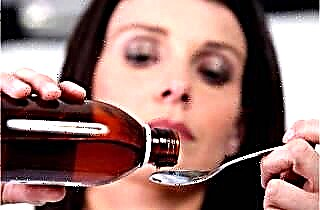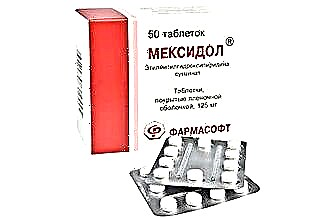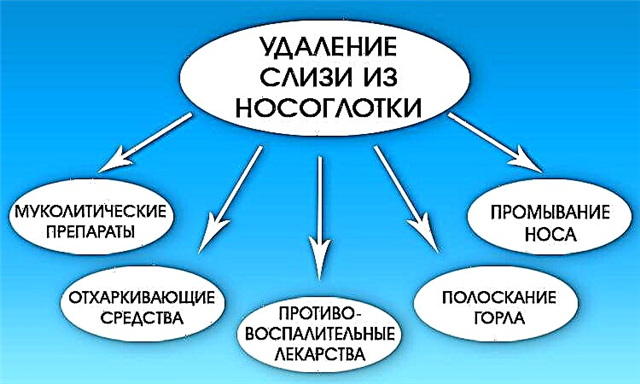Tonsillitis is a disease in which the tonsils are affected. The disease is often diagnosed in both children and adults. Weak immunity contributes to the onset of the disease. A decrease in the protective functions of the body, as a rule, occurs due to hypothermia, after sore throat, scarlet fever or measles.
Timely treatment of tonsillitis with antibiotics does not allow the acute form of the disease to transform into a chronic one (it is much more difficult to treat it). When should antibiotics be used for tonsillitis, and can antibiotic therapy be avoided?
Acute and chronic tonsillitis
 In the chronic form of the disease, antibiotics are prescribed by a doctor only after the type of pathogen has been identified and its resistance has been analyzed (sensitivity to the components of antibacterial drugs). For this, mucus from the tonsils is sown on pathogenic microflora and an antibioticogram. Bacterial tonsillitis is always treated with antibiotics only. In this case, you cannot do without them.
In the chronic form of the disease, antibiotics are prescribed by a doctor only after the type of pathogen has been identified and its resistance has been analyzed (sensitivity to the components of antibacterial drugs). For this, mucus from the tonsils is sown on pathogenic microflora and an antibioticogram. Bacterial tonsillitis is always treated with antibiotics only. In this case, you cannot do without them.
If the acute form of the disease is not too difficult, then usually the patient's body can overcome the disease on its own. That is, you do not need to take antibiotics. Moreover, the uncontrolled use of antibacterial drugs leads to a decrease in the protective functions of the body, contributes to the appearance of candidiasis and dysbiosis. Self-medication for all forms of tonsillitis is unacceptable.
Only a specialist can accurately establish the root cause of inflammation of the palatine tonsils, draw up a safe and effective rehabilitation course.
Correctly selected therapy will protect against possible complications:
- arthritis;
- pyelonephritis;
- rheumatism;
- pericarditis;
- myocarditis and some other diseases.
Antibiotic treatment
It should be noted right away that the active substances of the drug should freely and quite easily penetrate into the soft tissues. Their gradual accumulation will allow, if not to destroy the pathogenic focus, then significantly weaken the microbes and stop their growth. When tonsillitis is diagnosed, an antibiotic - a drug that meets the above requirements - will come to the rescue.
 So, what antibacterial agents can effectively treat tonsillitis?
So, what antibacterial agents can effectively treat tonsillitis?
- "Amoxicillin" is a drug that belongs to the group of penicillins and helps to cure tonsillitis caused by staphylococci and streptococci. This antibiotic is available in three types - capsules (200 and 500 mg), tablets (500 mg), as well as powders for suspensions. In addition, other drugs from the penicillin group - "Oxacillin" and "Benzylpenicillin" can be used to get rid of tonsillitis. They have a wide effect and quickly deal with salmonella, cocci and sticks. However, in some cases, the bacteria may be resistant to penicillin, then the next type of antibiotic is prescribed.
- Cefadroxil belongs to the group of cephalosporins and is available in the form of 500 mg capsules. It is good at destroying gram-positive and gram-negative bacteria. But "Cefadroxil" is not suitable for the elimination of enterococci. This drug can be used by adolescents from the age of twelve, as well as adults.
- It is actively used as a priority treatment for tonsillitis "Lincomycin" (available in the form of capsules of 250 mg), which is included in the group of lincosamides. This medicine has proven itself in the fight against streptococci and staphylococci. It can only be consumed from the age of six. Lincomycin is powerless against enteroviruses.
- The last group of antibiotics for the treatment of tonsillitis is macrolides. Of these, the following agents are usually used: "Erythromycin", "Azithromycin", "Clarithromycin". These drugs quickly destroy Haemophilus influenzae, mycoplasma, chlamydia, staphylococcus and streptococcus.
If this or that type of antibiotic does not have any positive effect on the body (does not relieve swelling, nor prevents the release of pus), it is replaced with another antibacterial drug.
When to use antibiotics
The main indication for taking antibacterial agents is an infectious inflammatory process, which is caused by a certain strain of microbes. If the body is able to destroy the bacterial focus on its own, antibiotics can be dispensed with. According to experts, antibiotic therapy is in demand if:
 high body temperature does not go astray for three days or more;
high body temperature does not go astray for three days or more;- the patient's condition is steadily deteriorating;
- symptoms of other diseases are found.
In all these cases, the likelihood of dangerous complications that can affect the internal organs and systems of the patient is rapidly increasing. Therefore, the use of antibacterial agents becomes justified, because the benefits many times exceed all the risks.
If the patient has a unilateral lesion of the palatine tonsils, and there are no coughing or runny nose, the cause of tonsillitis is streptococcus. However, in case of an atypical clinical picture, it is still recommended to carry out bacterial inoculation - to determine the specific type of pathogenic microorganism (and only then prescribe treatment).
As a rule, after examining a patient, it is impossible to say for sure which type of microbes caused tonsillitis (this requires laboratory tests). Therefore, doctors most often prescribe broad-acting drugs that can simultaneously resist various pathogens.
If the patient has previously suffered from rheumatism, it is better to play it safe and immediately prescribe an antibiotic (without it, the likelihood of a relapse of rheumatism is high). Angina can recur more than 5 times a year. This is a good reason to have your tonsils removed.
But antibiotic therapy will not always be appropriate. You should not use antibiotics if:
- the child is less than three years old;
- inflammation of the tonsils - the result of the activity of viruses / fungi in mononucleosis;
- the woman is pregnant or breastfeeding;
- the patient is allergic to one or another drug component.
Can antibiotics be dispensed with?
 The vast majority of these drugs have a number of side effects. Antibiotics lead to a violation of the intestinal and oral microflora, reduce immunity. Therefore, antibiotics should not be taken "just in case", as a safety net.
The vast majority of these drugs have a number of side effects. Antibiotics lead to a violation of the intestinal and oral microflora, reduce immunity. Therefore, antibiotics should not be taken "just in case", as a safety net.
Antibiotic therapy is not at all a prerequisite for the treatment of tonsillitis. Antibiotics are needed only when the symptoms become pronounced and there is a great danger of transformation of tonsillitis into a sore throat, followed by the appearance of purulent foci.
According to doctors, in the chronic form of tonsillitis, antibiotic therapy is ineffective. In this case, all efforts should be directed at local effects and increasing the body's resistance through the intake of vitamins.
It is worth noting that antibacterial agents for pharyngitis and tonsillitis are used less often than for eliminating tonsillitis. If in the latter case you cannot do without antibiotics, then tonsillitis can be successfully cured with antiseptics and vitamin therapy.
Useful Tips
Are you often diagnosed with tonsillitis and sore throat? Do you have to deal with colds with some regularity? Then pay attention to the following recommendations that will help you quickly overcome the disease:
- Only the attending physician should select a group of antibiotics and the optimal drug for therapy.Self-medication will not lead to anything good.
 Don't forget about topical antiseptics like hard candies, antipyretic medications, and so on. Such drugs allow you to quickly cope with pronounced symptoms. The use of antipyretic drugs is justified only when a temperature of 38 degrees and above appears.
Don't forget about topical antiseptics like hard candies, antipyretic medications, and so on. Such drugs allow you to quickly cope with pronounced symptoms. The use of antipyretic drugs is justified only when a temperature of 38 degrees and above appears.- Observe bed rest. It is very important to provide the patient with peace, since with tonsillitis, the body's defenses are significantly weakened.
- Get tempered, regularly take contrast showers, introduce more vegetables and fruits into the diet, do not forget about nutritional supplements to boost immunity. And even if this advice relates more to preventive measures, it certainly will not be superfluous.
Tonsillitis is an insidious disease that often develops into a sore throat and can be complicated by other diseases. In addition, with the wrong therapy, it quickly becomes chronic.
Chronic tonsillitis is much more difficult to treat, so seek professional help at the first symptoms of the disease. Only a doctor can draw up an optimal rehabilitation course. Be healthy, live happily ever after!

 high body temperature does not go astray for three days or more;
high body temperature does not go astray for three days or more; Don't forget about topical antiseptics like hard candies, antipyretic medications, and so on. Such drugs allow you to quickly cope with pronounced symptoms. The use of antipyretic drugs is justified only when a temperature of 38 degrees and above appears.
Don't forget about topical antiseptics like hard candies, antipyretic medications, and so on. Such drugs allow you to quickly cope with pronounced symptoms. The use of antipyretic drugs is justified only when a temperature of 38 degrees and above appears.

